Sassafras
Sassafras albidum
Sassafras is one of the most common sightings in the Alper Preserve. This deciduous tree of the laurel family is a southerner
in our flora and here usually does not reach the height and trunk diameter it attains down south, commonly growing to only
20 ft (sometimes to 50). It is easy to recognize by its often crooked trunks, characteristically furrowed mature bark, and
smooth green bark on young branches and stems. The aromatic 3-7-inch leaves are variable on the same tree: unlobed (elliptic),
3-lobed, or else 2-lobed (mitten-shaped), turning bright yellow, red, or orange in the fall. Sassafras produces flowers of
two types, staminate and pistillate, on different trees. The long-stalked small fruits are colored deep-blue. They are consumed
by birds and small mammals. Sassafras is capable of producing aggressive colonies from root suckers, especially when it is
disturbed.
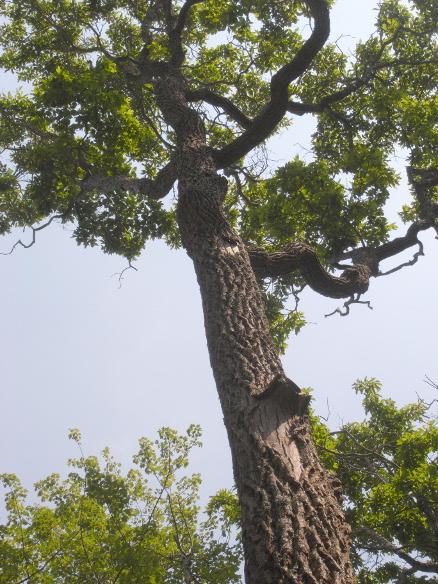
An old sassafras, Savery pond area, Plymouth. June 22
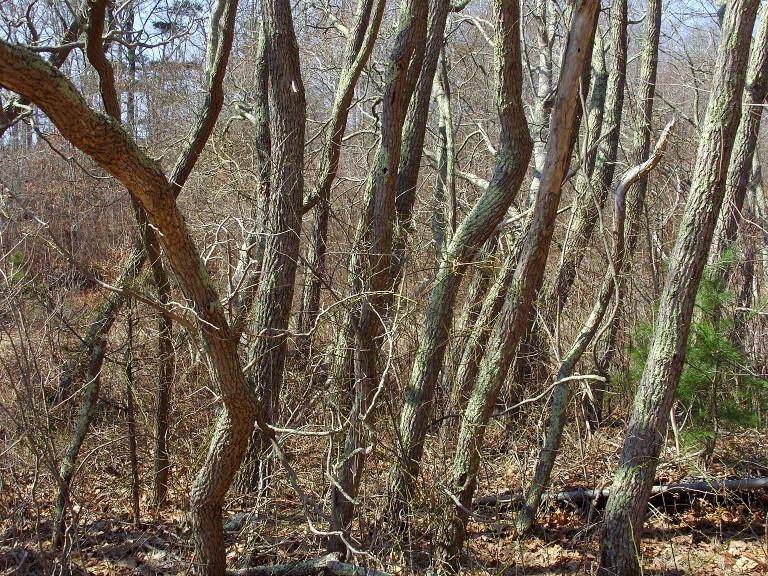
Root suckers often form groves. April 18, Plymouth
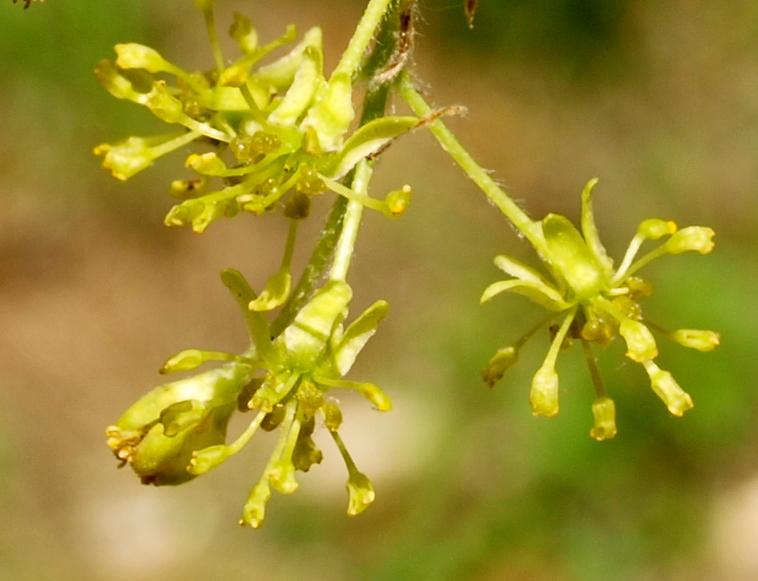
Staminate flowers, each with nine stamens. May 17
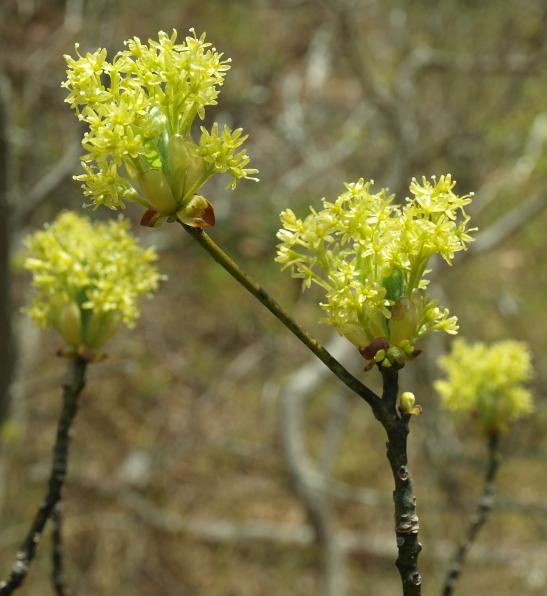
May 10
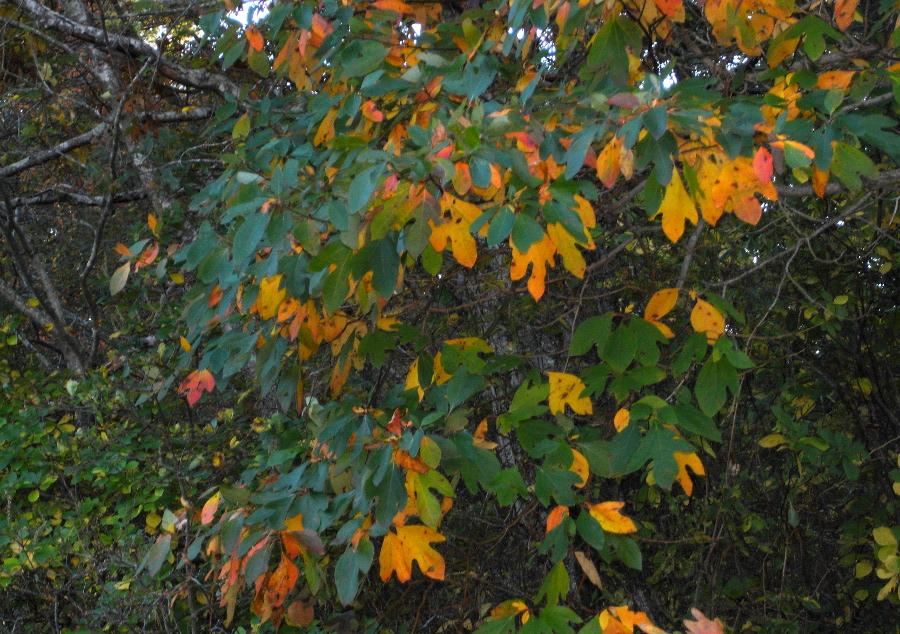
October 15, Plymouth